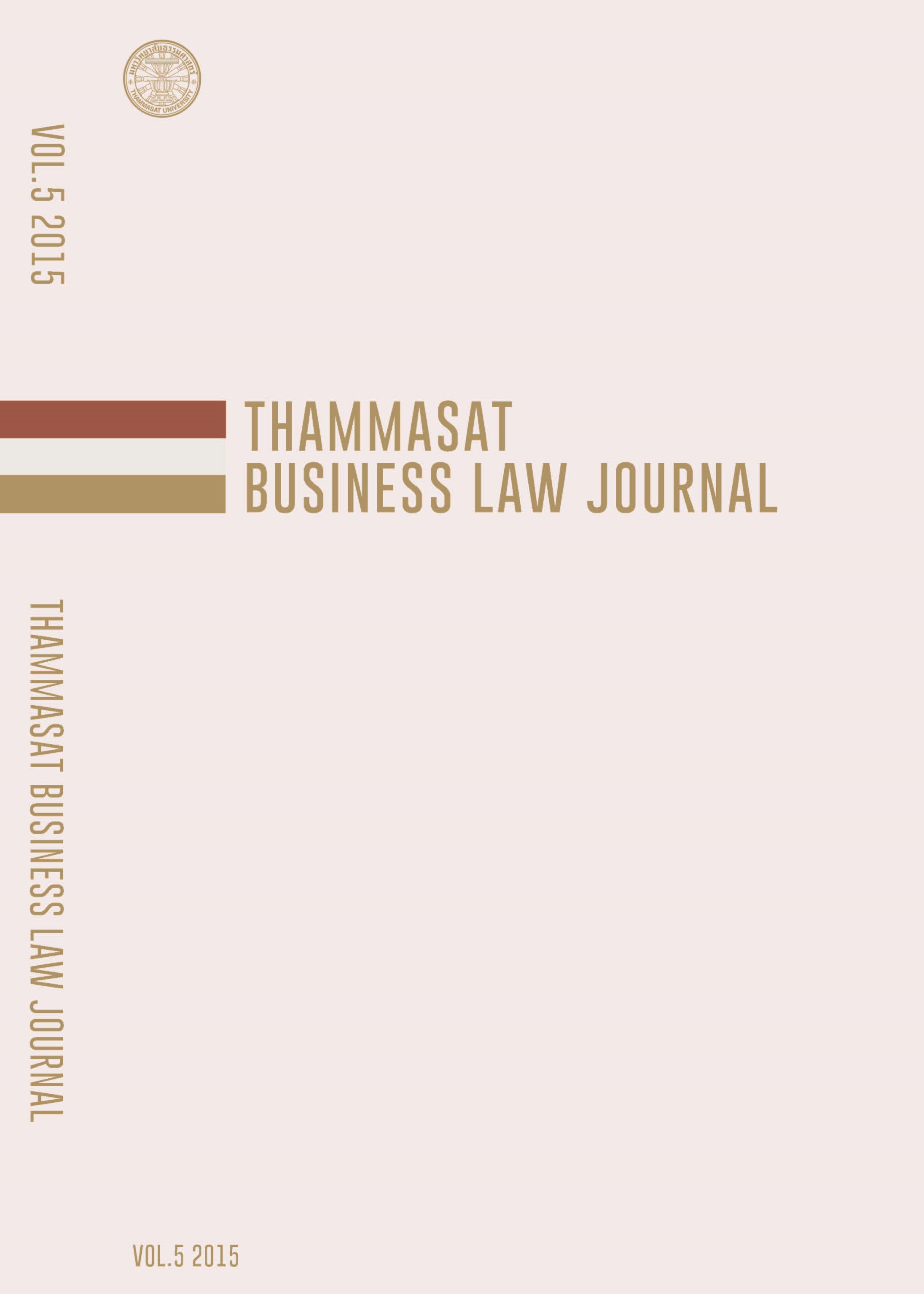LEGAL PROBLEM ARISING FROM ORGANIC COSMETIC
Main Article Content
Abstract
The rising of organic cosmetics products results in many cosmetic companies claiming that their products are “organic”. This is because the Cosmetic Act B.E. 2535 that regulates cosmetics products in Thailand does not control the use of “organic” in the label of cosmetics. As a result, many cosmetics companies do not have a clear idea of what organic cosmetics are. Subsequently, they would claim that their products are organic; even there are only 10 percent of organic ingredients in those products. And if they can use organic label freely, it can lead to false claim or misleading to the consumers. Unlike the products which are of agriculture products which are strictly controlled and monitored in regard of the use of the term” organic”. This is because there is no control measure in the use of the term “organic” for cosmetics in Thailand.
This thesis will study on the problem arising from the lack of control on the use of the term “organic” in cosmetics. Also, it will propose the measure regarding control of the use of the term “organic” in cosmetics.
Article Details
References
Cuyvers L. et al., Market profile: potentials for make-up cosmetics exports of Thailand to Japan, ASEAN Business Case Studies No 32, 2013.
สุษม ศุภนิตย์. คำอธิบายกฎหมายคุ้มครองผู้บริโภค.พิมพ์ครั้งที่5. กรุงเทพมหานคร: สำนักพิมพ์แห่งจุฬาลงกรณ์มหาวิทยาลัย, 2548(Suksom Supanid, The Explanations on Consumer Protection Law, 5th ed. Bangkok: Chulalongkorn University Publish, 2005.)
ดร.สมคิด ดิสถาพร. เกษตรอินทรีย์ มาตรฐานสากลประเทศไทย.พิมพ์ครั้งที่1. กรุงเทพมหานคร: จามจุรีโปรดักท์, 2549(Dr. Somkit Disathaporn, International Organic Agricultural Standard in Thailand.1st ed. Bangkok: Chamchuri Product, 2006.)
Young Kevin, Asia-Pacific Update: Korean Cosmetic Regulations, Cosmetics& Toiletries Magazine, Vol. 127, January 2012.
Yarussi-King Karen,Asia-Pacific Update on Korean Organic Standards, Cosmetics& Toiletries Magazine, Vol. 130, May 2015.
Duber-Smith Darrin C., Labeling for Legitimacy: Certifications for Natural and Organic Personal Care, Cosmetics& Toiletries Magazine, Vol. 128, August 2013.
Understanding Natural & Organic Cosmetic Labels (USA),
How Natural Makeup Can Improve Your Health,
What are the differences between certified organic cosmetics and conventional cosmetics?,
The National Organic Program, Program, United States Department of Agriculture Agricultural Marketing Service, < http://www.ams.usda.gov/NOP>(accessed August 8, 2015)
Organic beauty labels Organic beauty labels,
Be Skeptical of These 10 Marketing Terms,
Understanding Natural & Organic Cosmetic Labels (USA),
Food Marketing Institute Backgrounder; Natural and Organic Foods; September 2008,
“Green” beauty decoded,
U.S. Department of Agriculture: Organic Labeling and Marketing Information,
Asian cosmetics players opt for natural and organic standards, Simon Pitman,


